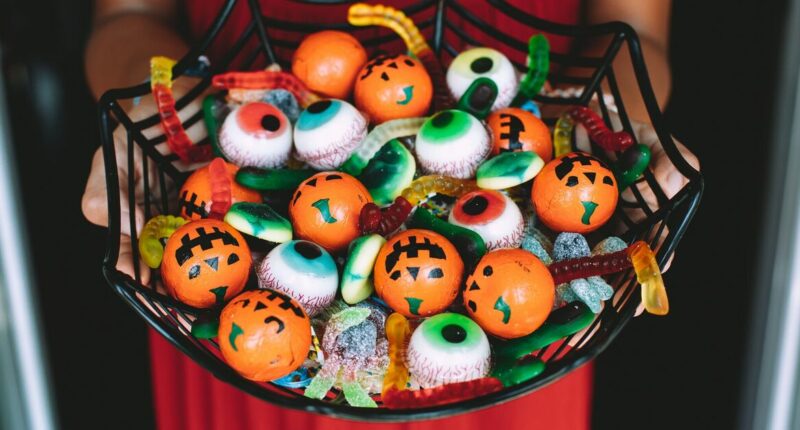Share this @internewscast.com
While Halloween is synonymous with an abundance of sugary treats, some candies pose health risks unrelated to their sugar content. Mixing certain sweets with specific medications can lead to unexpected complications, especially for individuals undergoing treatment for depression, anxiety, and heart issues.
Kiran Jones, a Clinical Pharmacist at Oxford Online Pharmacy, highlights which medications might be affected and how certain ingredients could either exacerbate side effects or diminish a drug’s efficacy. He also advises on which ingredients patients should steer clear of.
Depression, anxiety and Parkinson’s medications
One such ingredient is the artificial sweetener aspartame, which can interfere with neurotransmitters that Monoamine Oxidase Inhibitors (MAOIs) target.
MAOIs are frequently prescribed to manage depression, anxiety, and Parkinson’s disease by preventing the breakdown of neurotransmitters.
When these medications are combined with aspartame, there is a risk of an excessive accumulation of neurotransmitters. This can result in adverse effects like high blood pressure, headaches, anxiety, and insomnia.
Jones cautioned, “For individuals on these medications, it’s vital to avoid or limit consumption of aspartame-containing foods to prevent these potentially hazardous interactions.”
ADHD, anti-anxiety and blood pressure medications
Aspartame and comparable artificial sweeteners are frequently present in sugar-free treats and products such as ice cream, jellies, cereals and fizzy drinks. ADHD, anti-anxiety and blood pressure medications can be significantly affected by caffeine.
The stimulant can amplify the effects of drugs like Adderrall while simultaneously undermining the calming influence of SSRIs.
Furthermore, it can counteract the benefits of blood pressure medication such as beta-blockers by increasing heart rate and blood pressure. This could lead to unpleasant side effects like heart palpitations, insomnia, anxiety, elevated cortisol levels and even heighten the risk of serious complications like strokes or heart attacks.
The main Halloween treats that contain caffeine are chocolate-based sweets or coffee-flavoured candies.
Blood pressure, diuretics and antiarrhythmics medications
Those on blood pressure, diuretics and antiarrhythmics medications should be wary of glycyrrhizin, a chemical found in liquorice sweets. This substance can cause the body to lose potassium and retain sodium, leading to increased water retention and higher blood pressure.
This directly undermines the effects of blood pressure medications, potentially resulting in uncontrolled hypertension even in small amounts if consumed regularly. It can also exacerbate heart rhythm issues.
Allergy medications
People who rely on antihistamines to manage allergies may need to exercise caution around sweets with food colouring like M&Ms and Skittles. The dyes in these sweets can stimulate the release of histamines, the very substance that antihistamines aim to block.
This could hamper the potency of the medication, reducing its effect. Moreover, some individuals might have a sensitivity to these synthetic food colourings, potentially triggering allergic reactions like hives, itching and swelling.












